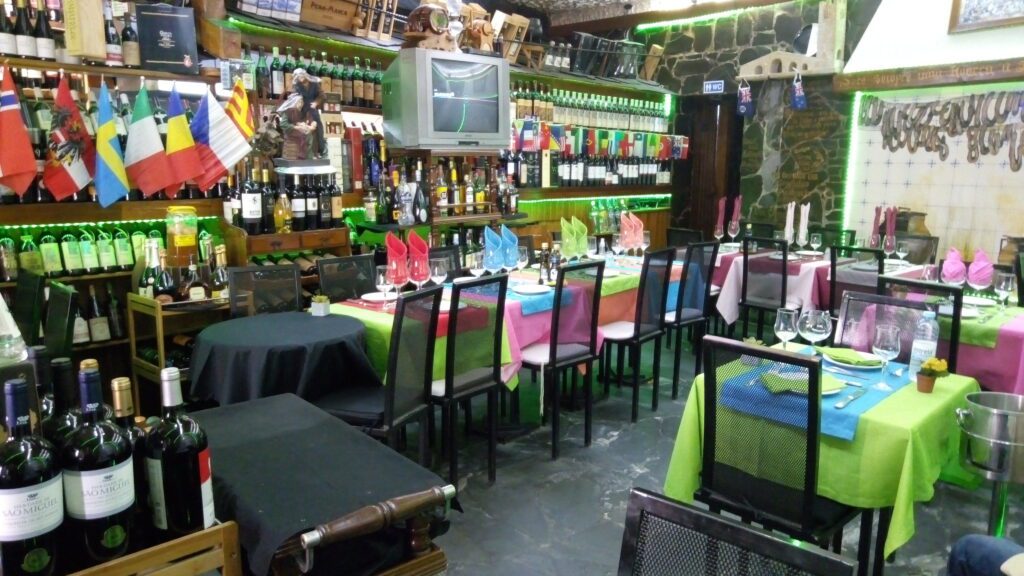Organize the Ultimate Vacation Adventures
Reading time – 5 minutes
Top Tips
This blog provides strategies and actionable insights to help you design unforgettable adventures for 2025. From setting clear travel goals to staying organized, this guide ensures you make the most out of your next year of exploration. Discover how to balance planning with spontaneity and create experiences that you will treasure for a lifetime.
1. Set Clear Adventure Goals
Start by defining what kind of adventures excite you—whether it’s cultural immersion, thrill-seeking, or relaxation. Sometimes you need to consider accessibility and health care options. Knowing your goals helps narrow down options and eliminates decision fatigue. Write them down to keep your vision clear and stay focused throughout the planning process. One year in our planning, we considered where there were forest fires, high levels of Covid and wars in order to decide on the best travel vacation.
2. Work with a Budget
Begin with a realistic budget to avoid overspending while ensuring great experiences. Break down your expenses into categories like travel, accommodation, and activities. This allows you to prioritize your spending and allocate funds to what matters most. Look at tours. Sometimes they provide the best value and they also give you ideas of where to stay and what to see if you plan your own trip.
3. Create a Rough Itinerary
Draft an itinerary focusing on your must-visit places and activities, leaving room for flexibility. Overloading your schedule can lead to fatigue, so allow downtime to recharge. A balanced itinerary ensures you cover highlights while enjoying your trip at a comfortable pace. Consider the interest of each individual. When we travelled to Whitehorse in the Yukon, I looked at a tour to see what were the must see sights. A few of them I incorporated into our trip and others were of no interest. I know that I can do a lot of research and miss something I would like to do. Other people are better at research than me.
4. Research Destinations Thoroughly
Take time to explore the culture, climate, festivals and attractions of your destination. This helps you prepare adequately for local customs, weather conditions, and potential restrictions. Research also allows you to discover hidden gems that align with your interests. Make sure to research the currency you need. On one trip I brought 3 types of currency when I actually needed 6 kinds of currency. It all worked out. It is nice to avoid higher exchange rates.
5. Leverage Technology for Planning
Use apps like Google Maps, TripIt, or budgeting tools to streamline your planning. These tools can help with travel routes, expense tracking, and even last-minute changes. By embracing technology, you save time and ensure smoother coordination. Download apps involved with flights trains and buses. It makes it simpler to be notified of schedule changes.
6. Involve Travel Companions Early
Discuss ideas and expectations openly with those you will travel with. Aligning goals early reduces potential conflicts and ensures everyone’s needs are met. Collaborative planning makes the experience more enjoyable for all involved. On one family trip, each member researched and picked an attraction they wanted to do. It added variety to the itinerary. They found things I never would have thought about doing.
7. Focus on Sustainable Travel
Try to choose eco-friendly options such as staying in green-certified accommodations or using public transport. Participate in activities that benefit the local community, like buying from local artisans. Sustainable travel enhances experiences while fostering positive impacts. One of our friends enjoys scuba diving. They booked a trip to a reef to help restore the reef to better health.
8. Leave Room for Spontaneity
While planning is crucial, don’t over-schedule every minute of your trip. Allow space to follow unexpected recommendations or explore offbeat paths. These serendipitous experiences often create the most memorable moments. Don’t be afraid to chat with other travellers and learn about their trip and experiences.
9. Prepare for Challenges
Plan for contingencies such as delayed flights, bad weather, or health emergencies. Carry essentials like travel insurance, emergency numbers, and a small medical kit. Being prepared minimizes stress and lets you focus on enjoying your adventures. Here is my tip, if your flight gets cancelled, take a picture of the electronic board in the airport that shows your flight number and cancelled. It is one of the easiest ways to provide proof of cancellation to other reservations ( hotels, trains) that will be impacted by your new schedule.
Here are some more vacation ideas. Check out planning your vacation
Please share a comment on planning for a trip.
 Julie Stobbe is the 2024-2025 winner of the Harold Taylor Award for outstanding contributions to the organizing industry and Professional Organizers in Canada. As a Trained Professional Organizer and Lifestyle Organizing Coach, she brings happiness to homes and organization to offices, coaching you virtually using Zoom. She has been working with clients since 2006 to provide customized organizing solutions to suit their individual needs and situations. She uses her love of teaching to reduce clutter, in your home, office, mind and time. She guides, mentors and supports you to be accountable for your time, to complete projects and to reach your goals. If you’re in a difficult transition Julie can coach you to break-free of emotional clutter constraining you from living life on your terms. Online courses are available to help instruct, coach and support your organizing projects. Get started by downloading Tips for Reorganizing 9 Rooms.
Julie Stobbe is the 2024-2025 winner of the Harold Taylor Award for outstanding contributions to the organizing industry and Professional Organizers in Canada. As a Trained Professional Organizer and Lifestyle Organizing Coach, she brings happiness to homes and organization to offices, coaching you virtually using Zoom. She has been working with clients since 2006 to provide customized organizing solutions to suit their individual needs and situations. She uses her love of teaching to reduce clutter, in your home, office, mind and time. She guides, mentors and supports you to be accountable for your time, to complete projects and to reach your goals. If you’re in a difficult transition Julie can coach you to break-free of emotional clutter constraining you from living life on your terms. Online courses are available to help instruct, coach and support your organizing projects. Get started by downloading Tips for Reorganizing 9 Rooms.
Contact her at julie@mindoverclutter.ca






I’m really resonating with #6 today. I’m working on planning a family trip, and my daughters have different priorities. It’s hard to balance everyone’s desires, but I think communication is important. I might not be able to meet everyone’s “ideal” trip, but I can invest time now to listen and truly hear everyone’s points of view.
I think being clear before the vacation about the plan and the itinerary helps avoid disappointments.
It is hard to have a vacation meet everyone’s needs. As my children got older I told them to each plan one day or event. It worked every well. I didn’t have to do all the work, everyone got a day that was their favourite and they were more respectful of the actitives other’s picked. When I did my best to try to have something for everyone there was a lot more complaining.
Great advice! We just planned a vacation, and many of these tips were put into use. It’s helpful to have specific indoor and outdoor options, and to be flexible if the weather is too hot or rainy. It was helpful for us to use a paper calendar, as we were driving to different places over the week. Thanks for sharing your thoughts.
I am happy to hear you had a successful vacation. When traveling with others flexibility is the key. If everyone understands the budget I think that helps to have less conflict over what is included and what is excluded.
I love your photo tip in #9. I mean, I love all sorts of travel tips, but I had never thought of that one before. Nice post, Julie!
That tip, was from my newest situation that arose this year. If I had taken a picture of the electronic board I could have sent it to a hotel and made the time limit for cancelling and receiving a refund. Having to wait for emails and other communication made it too late to get a refund.
What excellent advice for planning a wonderful vacation! I tend to do a minimal amount of research before a trip. Once we have the place, flights, and any other general details set, then I can look into other aspects. For the most part, we like to have less scheduled time away, but I know that’s not for everyone. And especially if you’re going aways for an extended period or to somewhere far away, that extra planning is invaluable.
I have found that I can do less planning when I am travelling with less people. When I go by myself only the basics are planned. As more people are added to the trip, with their own expectations, more planning is needed to keep everyone comfortable with trip.
I’ve been a life-long traveler (though I’ve rarely thought of them as adventures, as I’m an indoorsy girl) and I’ve never thought of #9. Taking a photo of the board to prove the cancelation makes so much sense for dealing with everything from trip insurance to all of your reservations. Funnily enough, I have two trips coming up over the next few months, and while the planning is mostly done (I planned the short one; the much longer one is a European tour), I love the guidelines you’ve put in place.
I love to over-research a destination so that I know everything that is a must-see for my tastes (as my tourism preferences don’t necessarily match what the average traveler would want), but I always leave space for unexpected possibilities.
I love to travel with people that over research because I like to explore. You would be a great guide for me as I like non tourist things too but hate researching. So far in my life I am very busy up to the time I leave. I don’t get the research done that I should. I have missed a few things I wished I had seen or done but overall the unexpercted experiences balance out a trip and make it enjoyable. If you every need a travelling companion contact me.